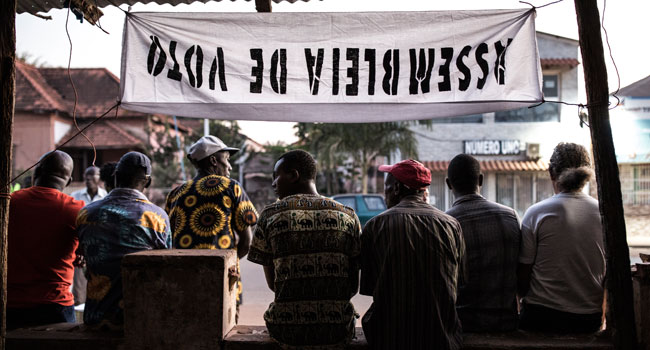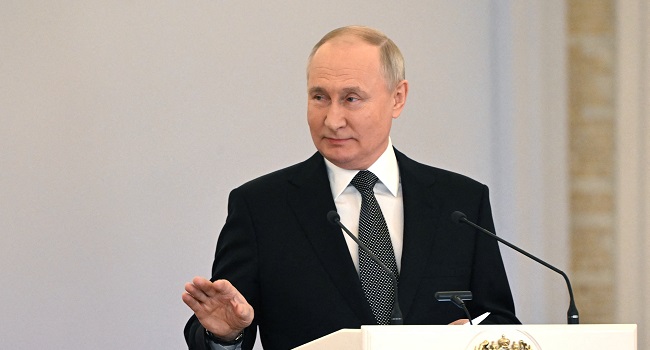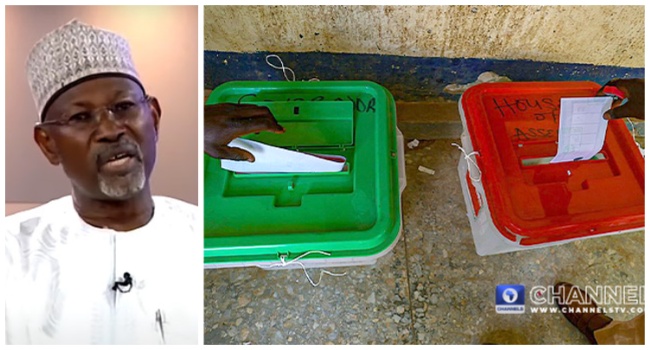
JOHN WESSELS / AFP
Guinea-Bissau’s presidential election ended in confusion on Sunday after the incumbent’s team accused opponents of ballot stuffing, and street scuffles erupted in the coup-prone West African state.
The vote capped four years of political chaos under President Jose Mario Vaz, who repeatedly sacked prime ministers and clashed with the parliament.
Despite earlier promising to accept the results, Vaz’s team accused his long-time rivals of electoral fraud and appeared to reject the poll.
Botche Cande, his campaign manager, told reporters that fraud had occurred “with the complicity of the African Party for the Independence of Guinea and Cape Verde” (PAIGC).
Vaz and the PAIGC, which is the largest party in parliament, have been at loggerheads since 2015 over who should lead the government. The dispute has mired the country in political deadlock.
Cande said a member of the PAIGC’s youth wing was caught handing out rice and money in exchange for votes and was surprised “with an envelope full of ballots”.
“Under such conditions, president Vaz will not accept tainted results,” he added.
The PAIGC has yet to respond to the allegations.
Guinea-Bissau has known little but military coups and political assassinations since independence from Portugal in 1974. Vaz is the first president in 25 years to have been neither ousted nor killed.
Domingos Simoes Pereira, who heads the PAIGC and is also a presidential candidate, has promised to respect the election results. As has the country’s all-powerful military.
While voting on Sunday morning began calmly, security officials who declined to be named told AFP that fights between rival political camps had broken out in several places around the country.
Polls closed 1700 GMT and provisional results are expected in the next 72 hours.
‘Corruption In Every Ministry’
Twelve candidates — all men — sought to convince voters that they could restore stability, improve scant public services and tackle the dire economy.
Guinea-Bissau ranks 177th out of 189 in the United Nations Human Development Index, and two-thirds of the population live on less than $2 (1.8 euros) a day.
Experts argue the 1.8 million populations also have to contend with a political elite that has systematically looted the country’s wealth.
Latin American drug runners have capitalised on chronic instability to implant themselves, using Guinea-Bissau as a transit point to Europe. Senior military and government figures have been implicated in the trade.
“There is corruption in every ministry,” student Wazu Sambu, 24, told AFP before the vote, calling graft the “first cause” of the country’s problems.
Electoral frontrunners such as Vaz and Pereira promised to tackle corruption during the election campaign.
Leadership Crisis
Vaz came to power in 2014 on hopes that he would restore normality after a coup two years prior.
But his presidency has been overshadowed by the paralysing conflict with the PAIGC, which has its roots in the fight to end Portuguese rule.
The crisis began in 2015 when Vaz sacked then prime minister Pereira after a falling-out, triggering a stand-off that has lasted ever since.
The PAIGC won parliamentary elections in March.
In October Vaz sacked another prime minister, which sparked fears of a return to violence when he refused to step down.
The Economic Community of West African States, which has a small peacekeeping force in Guinea-Bissau, condemned the sacking and warned of “risks of civil war”.
Vaz is now running as an independent after being expelled from the PAIGC.
Neighbouring countries fear the political deadlock could continue after the election if a non-PAIGC candidate wins, which would set him on a collision course with parliament.
AFP




